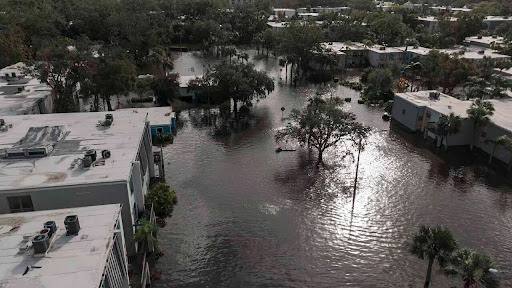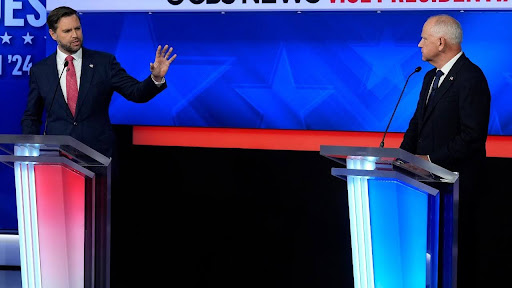It’s finally over.
The nastiest, most bitter and most partisan presidential campaign in recent memory has finally concluded after two straight years of “I approve this message” and super PAC ads dominating our television airwaves.
Now, the majority of us will forget all about presidential politics until the next nasty campaign begins after the 2014 midterm elections.
But for the new Congress, and the newly reelected President Obama, the job of nurturing our fragile economic recovery is just beginning.
The president’s agenda was stalled in the past two years by an obstinate Congress determined to block him at every turn. He’ll still have to deal with virtually the same party dynamics in the House (solid Republican majority).
“This is not hope and change,” “Meet the Press” host David Gregory said on NBC last night. “He’s been battered by the last four years.”
Now, he looks to four more years of the same. So why is it going to be any different?
Well, first off, he won’t have to spend all of his political capital on saving a cratering economy and passing health care reform aimed at guaranteeing universal coverage. In other words, the foundation has already been set. Even on autopilot, the economy will get better simply because of reforms like Dodd-Frank, the financial reform legislation that’s been the bête noir of the Tea Party.
Secondly, the looming fiscal cliff will offer Obama a unique advantage to tilt the playing field without having to do anything.
The scheduled tax hikes will raise the tax baseline, thus allowing Obama and the Democrats to deal with anti-tax Republicans with leverage on their side. In other words, Democrats can potentially dictate terms of fiscal policy even with split houses of Congress.
But that’s small potatoes compared to the overarching narrative of the election — Obama’s reelection is an affirmation that Americans believe government can play a role for good, and do not want, as conservative bellwether Grover Norquist like to say, to shrink it so small that it can drown in a bathtub.
And it might have taken an act of God to get that across.
Romney supporters have moaned about how Sandy stunted the former Massachusetts governor’s “momentum,” whatever that even means in electoral politics. And that very well may be true.
But what Sandy, and the president’s cool and competent response to the disaster, showed is that there are things that only the government can do. It showed how ridiculous Romney’s old plan to privatize FEMA was practically, and further demonstrated why many elected Obama in the first place — to provide steady and even-handed leadership in times of crisis.
The bump that he got from his response to Sandy was due in no small part to the tacit realization that the radical GOP agenda would make disasters even harder to recover from. Imagine if no government aid was forthcoming for people who’d lost everything. That’s Mitt Romney’s vision of America, and that’s the vision that the people rejected.
One of the toughest battles the president will face, and one in which he hasn’t shown enough political fortitude, is climate change. At this time in 2008, climate change was a relatively nonpartisan issue. But in the past four years, the GOP has been hijacked by climate change deniers, and Democrats decided to pursue health care reform over cap-and-trade legislation when they had a supermajority in the Senate.
Sandy is a sobering realization that climate change is indeed real, and an issue that must be tackled head-on. Obama showed that he has the leadership to lead us through a disaster. He has the next four years to show the same leadership in aiming to curb the disastrous trend of global warming.
But that’s a battle for another day. Obama’s win serves as validation for the sweeping reforms he put in place in his first term. We’re now set up to reap the rewards in his second.
Voters validate Obama’s vision
Donate to The Torch
$70
$500
Contributed
Our Goal
Your donation will support the student journalists of St. John's University. Your contribution will allow us to purchase equipment and cover our annual website hosting costs.
More to Discover
About the Contributor

Michael E. Cunniff, Editor-in-Chief
I'm Mike Cunniff, a junior journalism major and the sports editor here at the Torch.
When I was a little kid, I decided I wanted to be a sports announcer when I grew up. I used to turn down the volume while my beloved Patriots played and do my best Greg Gumbel impression as Drew Bledsoe fired pass after pass into the waiting arms of opposing cornerbacks.
That was my dream until I was about 14, when I realized that I had neither the dapper looks or silky baritone voice to warrant plastering my face all over television (and billboards, and magazine covers. Dare to dream, right?). I realized, when I wasn't plagiarizing Sparknotes when writing English essays (kidding, mostly) that I actually enjoyed writing, and decided that writing about sports suited me better than talking about them.
My favorite sports to watch/cover are basketball and soccer. I actually used to be a halfway decent shooting guard back in the day, before I did my knee in the offseason before senior year. I still love all four Boston teams (the Revs don't count), as well as Tottenham Hotspur of the English Premier League (I talk about them too much). I'm probably better than you at FIFA 12.
Outside of sports and journalism, I like The Office, Bagels 'N' Cream, road trips and karaoke.
__________
I like to joke with Mike that he’d react the same way to the Zombie apocalypse as he would in covering a major news break on campus — which is to say he wouldn’t really react in any particular way at all. Nothing seems to phase him. Anything — ANYTHING — could happen on campus, and I am confident that Mike would lead the Torch in the best possible reportage for that story. He has already demonstrated that ability in his superb coverage of the Sports section, and I know that ability would translate in a much larger role next year.
-Bill San Antonio
Editor-in-Chief, Emeritus









